
The Celesta is closely associated with music which depicts emotions of the romantic, mythical, lustrous and the mysterious type. It belongs to the percussion family of musical instruments as well as a struck idiophone operated by a keyboard. A struck idiophone is any musical instrument that is made to vibrate when struck either by a stick or by hand. The Celesta possesses an interesting dual character and is also a transposing musical instrument where the pitch sounded is different from the pitch written. The sound of the Celesta is soft and of subtle timbre and hence its name, Celesta, which means ‘heavenly’ in French. Ballets and operas, where ethereal dreams sequences are conjured on stage come to life with the accompaniment of the heavenly sound of the Celesta playing in the background. The sweetness of the tone, the ethereal quality of sound produced, the warmth and the lingering melody similar to a rippling effect symbolize the soft music of the Celesta. Let us learn more about this instrument.
An eighteenth century musicians' obsession with the idea of an instrument which had a timbre that was soft and warm and one which could reach a satisfactory volume led to the invention of the Celesta. In 1788, Charles Glaggett, an Irishman invented an instrument called an ‘aiuton’, which had a sweet and warm sound than that of a glass harmonica or any other stringed instrument. In 1860, Victor Mustel invented the typophone or dulcitone, which also had a keyboard and a row of tuning forks as sound generators but it was not widely accepted. Finally in 1886, Auguste Mustel, son of Victor Mustel developed an instrument and called it the ‘Celesta’, which met all the requirements of a heavenly sound and a range of five octaves from C3 to C8 and made it with a keyboard, metal bars, resonators and a pedal.
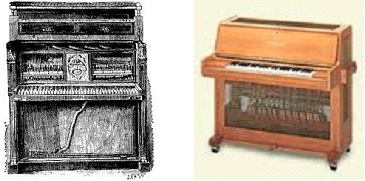
The technique behind the sound production of a Celesta demands that it is usually played like a piano, is played by a pianist or a keyboardist and the easy functions can also be played by a percussionist. When a key is pressed, a hammer strikes the metal bar. On pushing back of the pedal, the attached dampers are raised, which allows the notes to resonate. The Celesta is also played in the same way as the piano and also by using the finger and pedal technique.
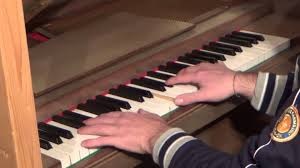
A Celesta musical instrument is essentially a wooden box or a case with a keyboard, damper pedal, metal bars, resonator boxes and felt hammers.
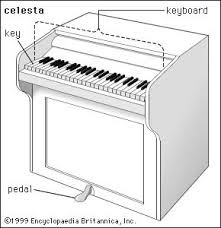
The Celesta is made from wood and metal. The steel bars rest on the felt rails over hollow wood resonators. These resonators are hollow boxes made from wood and fixed below the metal bars (one resonator per bar). The felt–covered hammers are connected to a keyboard by means of a complicated mechanism. The hammers however, vary in size and weight. The resonator boxes are arranged in two rows, one above the other, corresponding with the metal bars. They are fixed above the metal bars and are fashioned to correspond exactly to the pitch of the bars above.
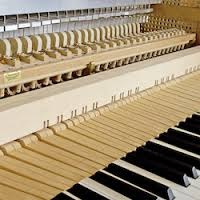
Celesta is used to convey soft, romantic and dreamy sequences. The need to create the ripple of the waves under the moonlit sky in operas, symphonies, ballets, rock and jazz is credited to the sound of the Celesta. The most notable composition is the Dance of the Sugar Plum Fairy in a full symphony orchestra and it is also used in incidental music. Cinematic compositions use the Celesta from decades to project dream sequences.
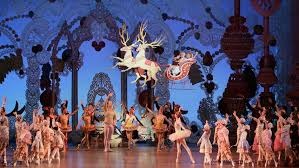
A musical instrument of this family includes the Glockenspiel (smaller in size compared to the celesta) and the Dulcitone.
- Glockenspiel: It is a percussion instrument with a keyboard and is played by a keyboardist. Glockenspiel produces sound which is similar to Dulcitone.
- Dulcitone: It is a keyboard instrument which is also operated by striking hammers. The Dulcitone resembles the Celesta in appearance.
Jazz pianist Earl Hines, Louis Armstrong and Frank Sinatra have used the Celesta in their compositions. Rock and Pop groups such as the Beatles and Rod Stewart also used the Celesta in their compositions. Stanley Sadie and John Tyrell are the notable players of this instrument.
Celesta Piano Studio in Victoria in British Columbia and the Yale School of Music in USA are well known schools that teach Celesta. Celesta is played as a piano. Beginners may take about 8 or 12 weeks, few months or a year or more.


